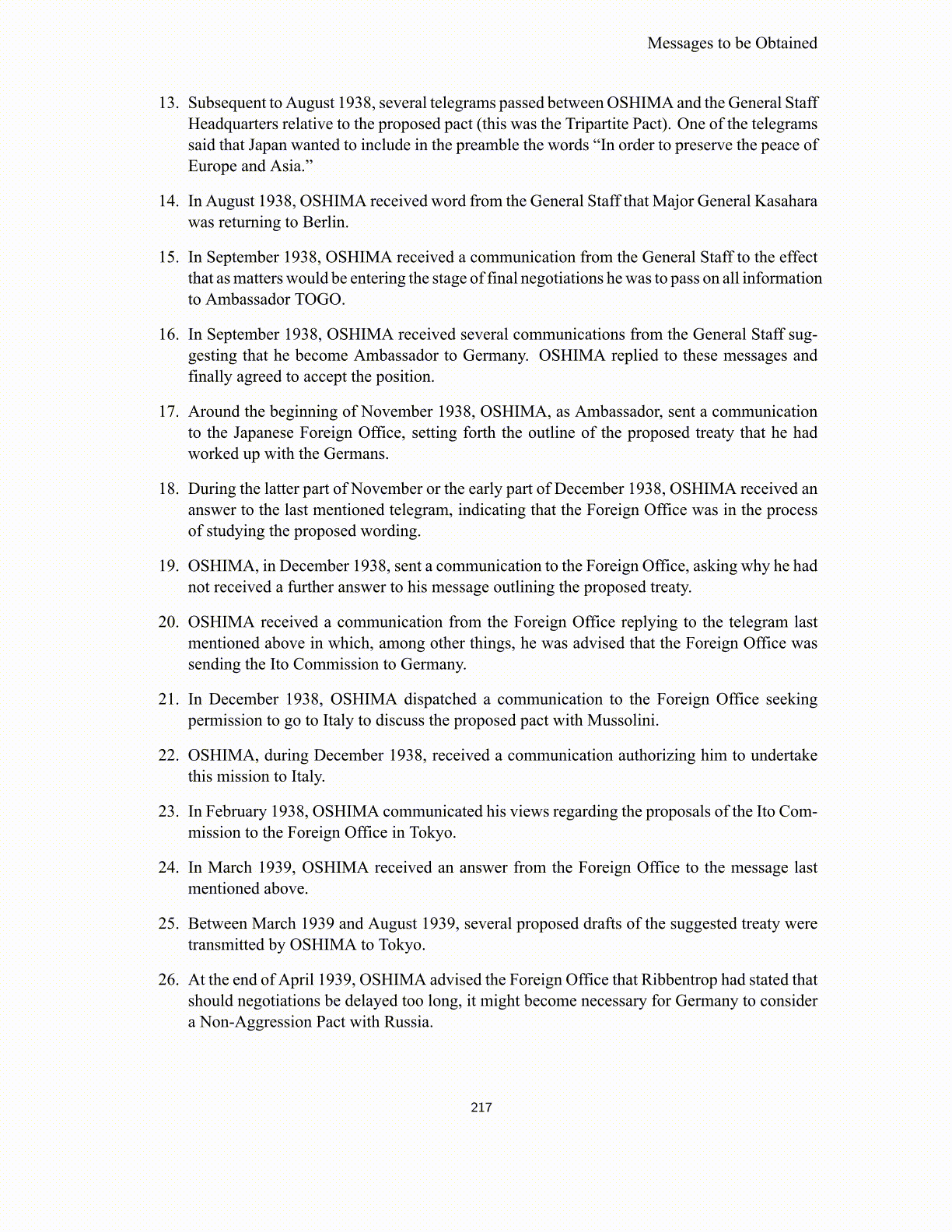
Messages to be Obtained 13. Subsequent to August 1938, several telegrams passed between OSHIMA and the General Staff Headquarters relative to the proposed pact (this was the Tripartite Pact). One of the telegrams said that Japan wanted to include in the preamble the words “In order to preserve the peace of Europe and Asia.” 14. In August 1938, OSHIMA received word from the General Staff that Major General Kasahara was returning to Berlin. 15. In September 1938, OSHIMA received a communication from the General Staff to the effect that as matters would be entering the stage of final negotiations he was to pass on all information to Ambassador TOGO. 16. In September 1938, OSHIMA received several communications from the General Staff sug- gesting that he become Ambassador to Germany. OSHIMA replied to these messages and finally agreed to accept the position. 17. Around the beginning of November 1938, OSHIMA, as Ambassador, sent a communication to the Japanese Foreign Office, setting forth the outline of the proposed treaty that he had worked up with the Germans. 18. During the latter part of November or the early part of December 1938, OSHIMA received an answer to the last mentioned telegram, indicating that the Foreign Office was in the process of studying the proposed wording. 19. OSHIMA, in December 1938, sent a communication to the Foreign Office, asking why he had not received a further answer to his message outlining the proposed treaty. 20. OSHIMA received a communication from the Foreign Office replying to the telegram last mentioned above in which, among other things, he was advised that the Foreign Office was sending the Ito Commission to Germany. 21. In December 1938, OSHIMA dispatched a communication to the Foreign Office seeking permission to go to Italy to discuss the proposed pact with Mussolini. 22. OSHIMA, during December 1938, received a communication authorizing him to undertake this mission to Italy. 23. In February 1938, OSHIMA communicated his views regarding the proposals of the Ito Com- mission to the Foreign Office in Tokyo. 24. In March 1939, OSHIMA received an answer from the Foreign Office to the message last mentioned above. 25. Between March 1939 and August 1939, several proposed drafts of the suggested treaty were transmitted by OSHIMA to Tokyo. 26. At the end of April 1939, OSHIMA advised the Foreign Office that Ribbentrop had stated that should negotiations be delayed too long, it might become necessary for Germany to consider a Non-Aggression Pact with Russia. 217